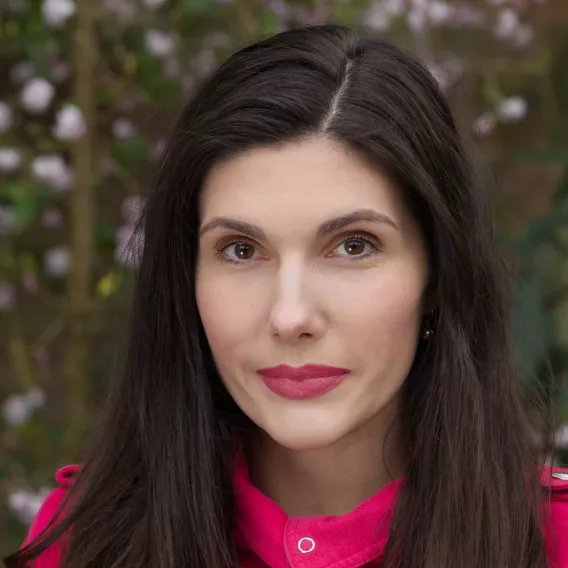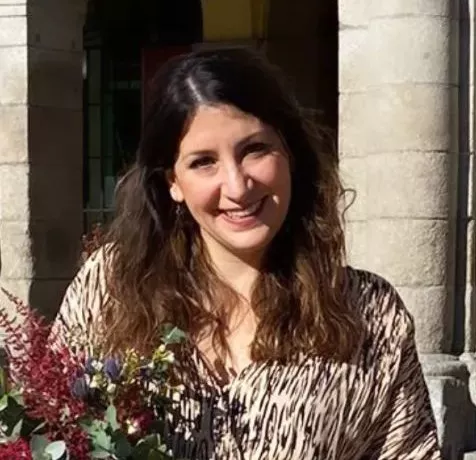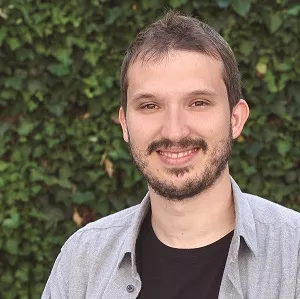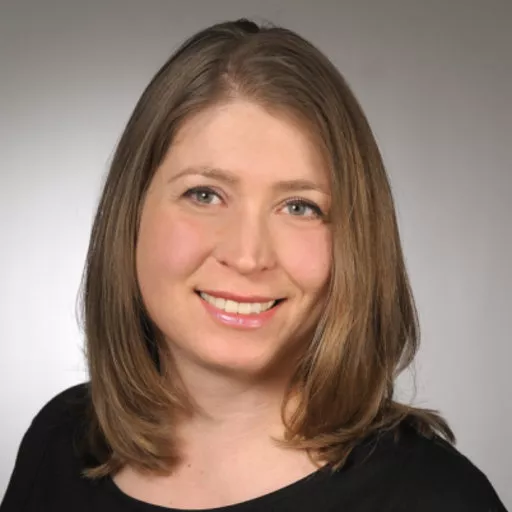

2023
Dr Sarah Schaefer joined CALS in 2023 as a Marie Skłodowska-Curie Fellow.
Dr Sarah Schafer, PhD in English and an MA in Journalism from the University of Galway (previously National University of Ireland Galway), and a Fellow of the Higher Education Academy.
Email: sarah.schaefer@ul.ie
Research Interests:
Sarah's research is situated in the fields of critical sociolinguistics, applied linguistics, linguistics, media studies, and cultural studies. She is generally interested in language mobility in times of accelerated globalisation and in how the media use language to reach their target audiences.
For her PhD thesis, she investigated the use of English linguistic resources on German public service and private adult contemporary radio and the societal and cultural factors shaping this use by journalists. She undertook a quantitative and qualitative linguistic analysis of a self-compiled corpus of radio morning shows (60h) and a qualitative analysis of semi-structured interviews with 19 journalists. In her interdisciplinary methodological approach, she combined theories of mobility and hybridity in critical sociolinguistics and cultural studies with media studies models describing the influences that shape media content.
In a recent publication, she has investigated radio journalists' translingual and transmodal practices on German adult contemporary radio and how journalists try to stimulate their listener's visual imagination to achieve communicative success in a non-visual medium. She is currently working on her postdoctoral project "Community, Identity and Diversity in German Youth Radio" funded by the European Union. In her ethnographic study at a German youth radio station, she is especially interested in examining the translingual and transmodal practices underlying the construction of a collective urban youth identity in professionally produced media messages and what a meaningful engagement with young people on topics of diversity and social cohesion means for journalists working at youth radio stations. In this context, her project sheds light on possible issues that can lead to an unbalanced and negative portrayal of ethnic and linguistic diversity on youth radio to foster a more meaningful engagement of journalists with diversity. An additional multimodal critical discourse analysis of the station's produced media messages allows her to get further insight into journalists' routine practices and to develop approaches for diversity-oriented communication. In this way, her project responds to timely social concerns around difference and voice in a mobile world fraught with deepening division.

2023
In 2023 CALS welcomed Dr Maria Muelas Gil.
María Muelas Gil, Assistant Professor at the Department of English Philology at the Universidad Autónoma de Madrid.
E-Mail: maria.muelas@uam.es
Dr María Muelas Gil is Assistant Professor at the Department of English Philology at the UAM. She graduated in English Philology at the UAM in 2012, Master in Applied Linguistics in 2014 and PhD in Cognitive Linguistics, she defended her PhD thesis in November 2018, receiving International Mention and Cum Laude. She has worked as Associate Professor in the Department of Modern Languages at the University of Castilla-La Mancha (2014-2019), where she has taught English Language Didactics, among others. Currently, she teaches Languages in Communicative Contexts (Semantics and Pragmatics) and English Language II in undergraduate programmes; English as an International Language in the Master's Degree in Compulsory Secondary Education; and Corpus Linguistics and New Technologies in the Foreign Language Classroom at MULAI. She has completed a pre-doctoral stay at the Universidade Católica Portuguesa (Braga) in 2018, a post-doctoral research stay at the University of California Irvine (UCI) in 2022 and two Erasmus+ teaching stays at the University of East Anglia University and Anglia Ruskin University, UK.
Her main lines of research focus on Cognitive Linguistics and Pragmatics, and more specifically on the use, production and interpretation of conceptual metaphor, combined with corpus-based methodology; she has recently initiated a multidisciplinary and international line of research investigating the processing and production of gender stereotypes in Spanish and English.
She is currently a member of the European collaborative group We-Collab, the research group “Polarization and Digital Discourses, Critical and Socio-Cognitive Perspectives” and the collaborative project Ministry of Defence-UAM GNOSS for the development of activities for the training and development of innovative digital teaching resources.

2021
In 2021 CALS welcomed Marie-Curie postdoctoral fellow in 2021, Dr Sergi Morales-Gálvez.
Sergi Morales-Gálvez, BA Political Science, MA Political Philosophy (Pompeu Fabra University, Barcelona), PhD Philosophy (Leuven)
E-Mail: Sergi.MoralesGalvez@ul.ie
Sergi Morales-Gálvez is a political theorist who works mainly on topics in contemporary political philosophy, especially in theories of justice, multiculturalism, linguistic justice, republicanism, federalism and secession. His publications have appeared in Political Studies, Ethnicities, Ethnopolitics, Critical Review of International Social and Political Philosophy, Nations & Nationalism, and The Journal of Language and Law. He is co-editor (with Nenad Stojanović) of Equal Recognition, Minority Rights and Liberal Democracy (Routledge) and currently co-editing (with Marc Sanjaume, Elvira Riera and Lluís Pérez) a collective volume on Contemporary Analytic Political Philosophy (in Catalan).

2019/2020
In 2019/2020, CALS welcomed two visiting Research Scholars. Dr Sandra Ballweg (University of Bielefeld, Germany) and Petter Hagen Karlsen (PhD student employed at the Inland Norway University of Applied Science).
Sandra Ballweg holds a PhD in second language acquisition with her PhD research focussing on the use of writing portfolios in foreign language instruction. She is the author of Portfolioarbeit im Fremdsprachenunterricht (2015) and co-author of Wie lernt man die Fremdsprache Deutsch? (2013). Her primary areas of research interest include multilingualism, language and identity, foreign language writing, and learner autonomy. Sandra was funded by the the Erasmus+ Staff Mobility scheme for her second trip as visiting scholar to the University.